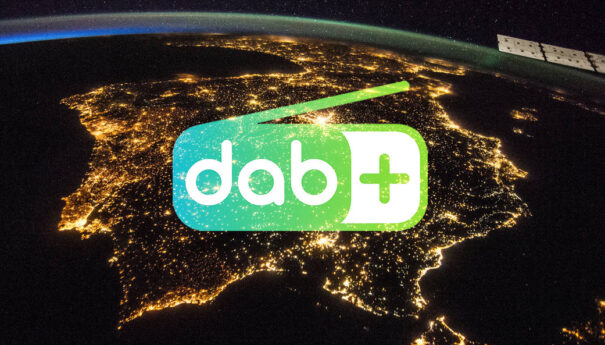Is DAB in Spain getting closer? The tender reaches the Constitutional Court
En esta tribuna, Jaime Rodríguez Díez, abogado – socio of Díez & Romeo Abogados, comparte las últimas novedades del estado del DAB en España.
Entre septiembre y octubre de 2022, he Tribunal Constitucional ha admitido a trámite 16 Recursos de Amparo interpuestos por varias emisoras de radio frente a la negativa a convocar las licencias de radiodifusión sonora digital terrestre (DAB). Es un paso adelante con respecto a la situación del DAB, ya que desde hace varios años vivíamos un notorio estancamiento en su desarrollo.
Los hechos se remontan a 2018, cuando las radios solicitaron a las CCAA la convocatoria de los concursos públicos de licencias de radio digital vacantes. Varios motivos impulsaron esas peticiones: the creciente iniciativa privada ante el escaso número de licencias, the disponibilidad del espectro and the implantación real de la libertad de prensa en el mundo digital. Además, hay un elemento clave: las autoridades tenían la obligación legal de licitar las licencias audiovisuales sin adjudicar. Sin embargo, muchas CCAA, salvo Extremadura, Baleares y Navarra, se negaron a sacar a concurso las licencias disponibles.
Ante ello, desde Diez y Romeo se asesoró la posibilidad acudir a la vía judicial. De hecho, muchas emisoras lo llevaron a la práctica acudiendo a los distintos Tribunales Superiores de Justicia de las CCAA.
 Libertad de prensa vs. trabas administrativas
Libertad de prensa vs. trabas administrativas
Los argumentos de la batalla judicial radicaban, por parte de las emisoras de radio, en cuatro principios fundamentales. Destaca, entre ellos, el reconocimiento del deber de convocar las licencias audiovisuales sin adjudicar con independencia de los motivos que dieron lugar a esa situación, así como la infracción de la pluralidad de medios al negarse a convocar concursos audiovisuales, dejando a los ciudadanos sin oferta radiofónica y al mercado audiovisual bloqueado. No obstante, también hay que tener en cuenta que la legislación no ha regulado el espectro radioeléctrico para que pueda quedarse sin utilizar, así como que sí que existían comunidades autónomas, como Navarra, que sí que habían impulsado licitaciones de licencias.
Por parte de las CCAA, estas negaban la convocatoria admitiendo motivos como que, el transcurso de más de 1 año desde la planificación de frecuencias, las hace desaparecer y ya no pueden sacarse a concurso; las dificultades de implantación de la tecnología de radio digital; las dudas sobre la viabilidad económica radio digital en España, porque han pasado 18 años desde que se otorgaron las concesiones, y, finalmente, la aparente falta de interés de las emisoras.
Tras los trámites procesales, la mayoría de los TSJ fallaron a favor de las emisoras y dictaron sentencias condenando a convocar las licencias de radio digital disponibles. De ahí, que CCAA como Extremadura, Navarra y Cataluña acataran las sentencias.
Una decisión del Tribunal Supremo cuestionada
Ante esta situación, la mayoría de las CCAA recurrieron al Supreme Court, que terminó fijando una nueva doctrina jurisprudencial a favor de la extinción de las frecuencias por el trascurso del tiempo.
Es decir, el T. Supremo dijo lo siguiente: si en el transcurso de un año desde que se planifican las frecuencias del espectro no se convoca el concurso de las licencias de radio que usan esas frecuencias, dicha planificación decae y se excluye.
El Tribunal Constitucional ha señalado que la negativa a convocar las licencias de radio digital plantea una cuestión jurídica de relevante y general repercusión social o económica
Como era de esperar, ningún medio de comunicación aceptó el planteamiento del Tribunal Supremo por considerar que vulnera la libertad de información y comunicación del art. 20.1 a) y d) de la Constitución. De hecho, desde los abogados de su defensa, se apuntaba que: “No es posible que la pérdida de un plazo para convocar los concursos, que corresponde cumplir a las CCAA, termine dejando a las radios sin optar a las licencias para emitir”.
 El Tribunal Constitucional entra en escena
El Tribunal Constitucional entra en escena
Las sentencias del T. Supremo fueron recurridas ante el Tribunal Constitucional por ser contrarias a los preceptos de la Constitución que afectan a la libertad de medios. A día de hoy, el T. Constitucional ha examinado los recursos de amparo y ha acordado admitirlos a trámite. Hasta la fecha son 22, aunque se esperan algunos más.
La admisión a trámite de los recursos ante el TC es muy complicada, pero en este caso los Altos Magistrados han apreciado que concurre una especial trascendencia constitucional, dado que esta disputa puede dar lugar a que se produzca un cambio de postura en las decisiones del Tribunal Constitucional.
Además, en las decisiones de admisión de recursos, el Tribunal Constitucional ha señalado que la negativa a convocar las licencias de radio digital plantea una cuestión jurídica de relevante y general repercusión social o económica.
Un cambio en el panorama del DAB en España
There are more and more numerosas las emisoras que pretenden legalizarse, pese a las dificultades puestas por las CCAA que no convocan los concursos de licencias. Eso afecta a la pluralidad de ofertas radiofónicas, impide a los oyentes disponer de más libertad de prensa y bloquea la contratación de periodistas y técnicos de radio. De ahí la importante repercusión socio-económica que menciona el Tribunal Constitucional.
Muy pronto, tendremos una conclusión, la cual podrá (o no) arrojar luz sobre una situación compleja and of amplio interés para la totalidad de la radiodifusión en España.
Las CCAA afectadas por esta decisión, por haberse negado a la convocatoria, son Asturias, Canarias, Cantabria, Castilla y León, Castilla La Mancha, País Vasco y La Rioja.
Antes de dictar las Sentencias el T. Constitucional analizará todas las actuaciones que se han dado en los tribunales inferiores. Muy pronto, tendremos su conclusión, la cual podrá (o no) arrojar luz sobre una situación compleja and of amplio interés para la totalidad de la radiodifusión en España.
Jaime Rodríguez Díez
Abogado – socio of Díez & Romeo Abogados
Did you like this article?
Subscribe to our RSS feed and you won't miss anything.

















